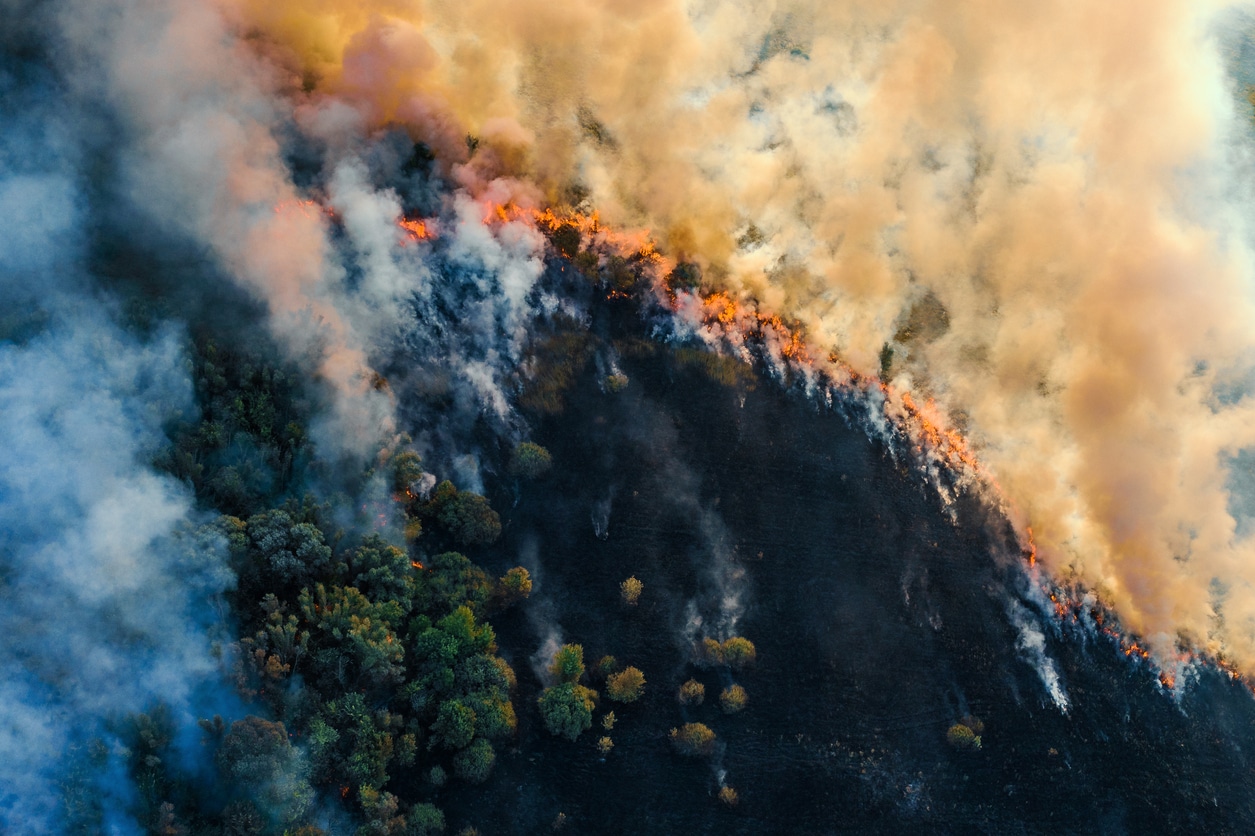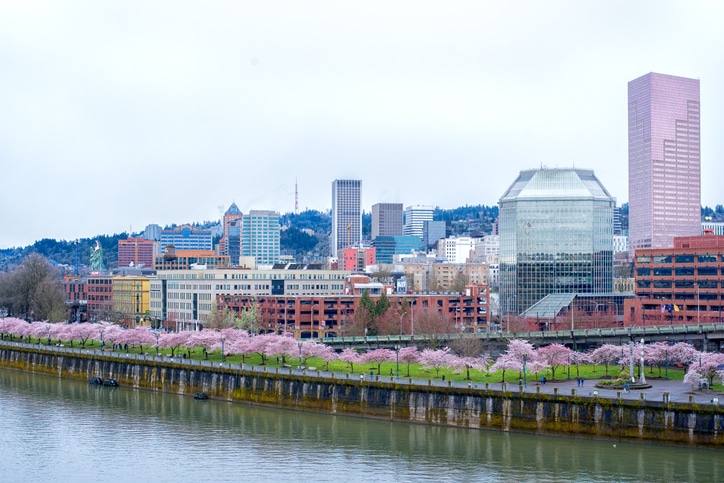Portland, Oregon Natural Disaster List. Is your Home Safe?

It’s no secret that the climate in Portland, Oregon and the entire Pacific Northwest is changing. Natural disasters happen everywhere, and certain areas are more prone to certain types than others. So, what about Portland? Here, we’re generally spared the tornadoes and cyclones of the Midwest and the tsunami that threatens the west coast, but Portland does have its fair share of past and potential natural disasters to keep in mind.
While we don’t want to alarm anyone and scare you away from buying a home here, we do want to make visible some of the natural disasters all Portland residents need to know about. In fact, we’re sharing this information because we DO want you to invest in Portland. And we want you to know everything you need to know to make a well-informed decision. Knowing what might happen is the first step in making the right decision about which home to buy and making sure you’re prepared should Mother Nature decide to unleash.
1. Portland Floods
As history has shown, Portland is not immune to flooding. Not only does it rain a lot here, our entire city was built around two major rivers. And then there’s the issue of the rising ocean only an hour away. Without a doubt, homeowners and buyers in Portland need to consider the potential for flooding.
Portland has seen a few significant floods throughout history. Both the Willamette and Columbia Rivers spilled over their banks back in 1894, wreaking havoc on the city. In 1948, the Columbia, once again, rose and wiped out the community of Vanport, displacing many of its residents. The last—and largest—major flood in the area was in 1996, when the Willamette overflowed leaving behind fatalities and significant monetary damage.
Of course, some areas are more protected from flooding than others. Curious about your neighborhood? A good place to start is the Portland Flood Hazard map. When you click on “Layers” you can toggle to portions of the map that show the 100-year floodplain and the affected area from the 1996 flood. You can also visit the City of Portland’s Floodplain Map Information where you’ll find details about reports and data you can request from the City, with links to more maps so you can look up your own address.
The City of Portland has made strides in infrastructure improvements to prevent, or at least diminish, catastrophic damage from flooding in the future. They also offer reimbursements to some who install rain gardens for flood abatement.
Learn more about installing and maintaining rain gardens and rain barrels.
2. Portland Landslides
Portland’s West Hills are vulnerable to landslides because they were built on steep slopes. Add to that the unstable soil in that section of Portland, and you can imagine why this natural disaster made the list.
A landslide can wipe out roads, vegetation (including tall trees), and homes. The more subtle effects of landslides are cracked sewer lines and the pooling up of water in areas that can cause safety issues and structural damage.
The Oregon Department of Geology (ODOG) says the possibility of landslides in Portland is “a real risk.” Based on the reality that certain areas of Portland have already had slides in the past, making them prime spots for future slides, they created an interactive map. Take a look, at a tax lot level, and see how your neighborhood fares. Not only will having this information provide you insight about how to be prepared for such an event if you already live in one of these areas, but it can also help inform your decision to buy a home, as well.
Oregon.gov has detailed instructions about how to manage a landslide before, during, and after. Other helpful resources are the Portland Bureau of Emergency Management and the ODOG’s Homeowners’ Guide to Landslides.
3. Portland Heat Waves and Urban Heat Islands
As you know, if you lived in Portland during the summer of 2021, we saw an unprecedented heat wave that took many lives. What happened? New insights into the cause of last summer’s scorching weather help explain it a bit more, but what does this mean for Portland’s future when it comes to higher temperatures? It’s hard to say just yet.
Closely tied to heat waves—or at least to rising temperatures—are Urban Heat Islands (UHIs). In 2020, we reported that Portland was #4 in the nation for this phenomenon, which is caused by heat being trapped in concrete on hot summer days and radiated back into the air, raising temperatures even more the next day. Factors that cause a high UHI index are few trees, big buildings, and lots of concrete. The good news is that as of the summer of 2021, Portland didn’t even make the top 20 in the country for UHI concerns.
While this is good to hear, AP News reports that no one anywhere is out of the woods when it comes to the effects of climate change. Being prepared and planning for future potential extreme heat waves in Portland should be on everyone’s minds.
4. Portland Earthquakes
As with most of the west coast, Portland sits on a major 600-mile fault line called the Cascadia Subduction Zone. According to Oregon.gov, the last major earthquake that occurred along this fault was on January 26, 1700. Does this mean Portland is in the clear, or that we’re due for another one? Experts say the latter.
Scientists predict a 37% chance of a 7.1+ magnitude quake along this fault within the next 50 years, deeply affecting the Pacific Northwest. Also, the Gales Creek Fault, located about 22 miles west of Portland is now known to be more active recently than originally thought.
Does this mean we all need to run for the hills? Not necessarily. We do need to be aware and take preparedness measures, though. So what do those look like?
Oregon.gov says that with Oregon’s current preparedness levels, residents can expect to be without services for about two weeks. They offer a Two Weeks Ready Emergency Plan and other earthquake-specific resources. Likewise, Portland.gov offers advice and resources for preparing and securing your home for an earthquake.
Learn more about seismic retrofitting to fortify your home in the event of an earthquake.
5. Portland Wildfires and Inversions
Last year Oregon had a record-setting number of wildfires. Experts at Oregon State University say that, due to climate change, the number of wildfires in the area will continue to increase in size and intensity. For some, it’s hard to understand why this is the case with Oregon being such a damp state. The reality, though, is that the landscapes here are naturally dry.
While the Willamette Valley (Portland’s location) and the coast are exceptions—meaning that Portland doesn’t make the list for the top Oregon cities to be hit by wildfires—we can still be seriously affected by fires when they rage on for days.
Case in point: In 2021, Oregon’s wildfire season started in May (after an abnormally dry spring) and lasted through July. So, if wildfires aren’t an immediate threat to Portland, why do we need to be aware of them?
Portland is located in a valley, so we get hit with inversions, which basically means warm air settles in and puts a “lid” on top of the smoke that settles into the valley. This creates health hazards for everyone, and especially for the elderly and those with chronic illnesses, like asthma. One thing you can do to cut down on the amount of smoke entering your home is to tighten the seals around your windows.
This isn’t to say that Portland is void of wildfire hazard zones, though. The west side of Portland has a Wildland Urban Interface. It’s the spot where Forest Park meets the city. Other high-risk zones are southeast of Portland around Johnson Creek and Happy Valley.
Check out the Portland wildfire risk map here.
Learn about tips to stop smoke from entering your home.
Should You Buy a Home in Portland?
The short answer is “yes.” There’s no doubt that we’re faced with a few concerning potential natural disasters and some that are becoming more common. But that can be said for most areas across the country. Despite these issues, Portland is still a great place to live. Talk to us about your concerns. Our experienced top 1% seller’s agents and top 1% buyer’s agents have seen a lot in our almost 20 years in real estate in the Portland metro area. We’re happy to answer your questions and walk you through the process of finding your next home. Chat with the bot on our site or give us a call today.


